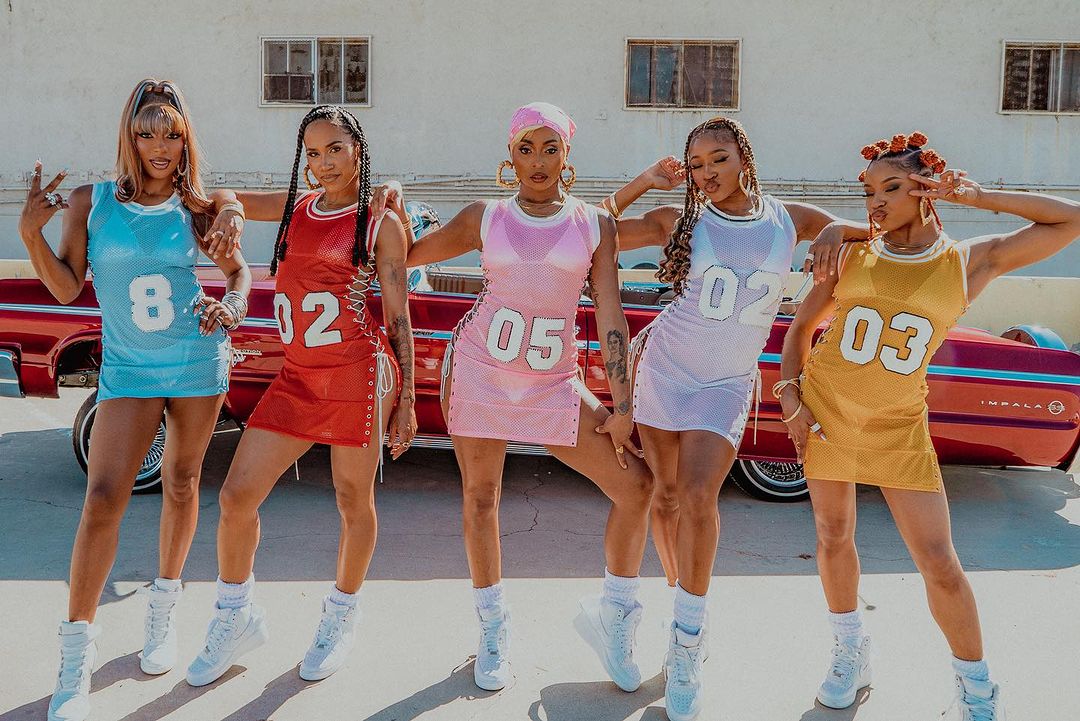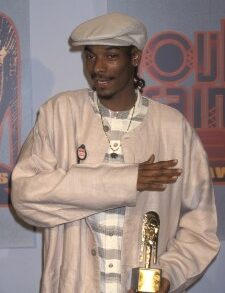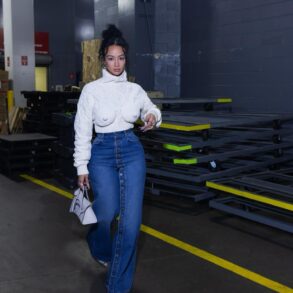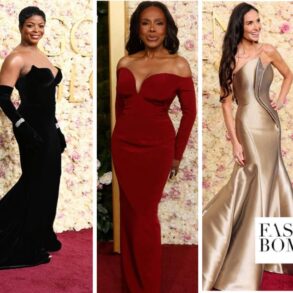
Throughout the years, the Y2K era became an obsession for Gen Z’ers in music, aesthetics and fashion, so it’s important to remember that there’s always been an intersectionality between Black culture, popular culture and sports.
On January 15, a tweet hit the timeline spotlighting fashion designer Kristin Juszczyk sporting the pieces she crafted from sports memorabilia, “Thank you, Kristin Juszczyk, for proving that women’s sports merch doesn’t have to be hideous,” the user shared on X. The tweet sparked a frenzy in the comments, as users flooded the post debunking the statement that’s been relative to Black women for over 20 years.
Read ‘What Exactly Is Y2K Fashion?’
In the early aughts, rocking a jersey was a canon event. The top became a simple yet standard uniform for male rappers stunting in the piece, from music videos to appearances. From Jay Z sporting a Brooklyn Nets jersey in concert to Fabulous hosting an entire rare collection, this trend trickled down to the masses of Black men and boys as a must-have in their closet. The game changed in November 2001 when Reuben Harley, the vice president of Mitchell & Ness sporting goods store’s grandmother, turned too-small men’s jerseys into a generational trending ensemble: The Jersey Dress.
The earliest debut came from Faith Evans on 106 & Park, inspiring young girls to customize their own jerseys and rock the popular jersey dress style. From that moment on, the snowball effect began, and the jersey dress became a staple in Black fashion, receiving recognition from stars like Mariah Carey, Destiny’s Child and Mya, who still has references in 2024.
As the trend continues to grow, we still have conversations, emulating and celebrating the impact of the jersey dress; we also have to pay homage to the origin of the trend. Through this fashion movement, artists continue to blend hip-hop, sports and style that live on through Zillennials and Gen Alpha.
Although Black women in the 1990s and early 2000s paved the way for what the jersey dress means in fashion from a historical lens, the trend continues to thrive today with artists like Victoria Monét, who wore the ensemble in the “On My Mama” music video designed by Kollin Carter. The piece is more than a fad that just landed on the timeline. It symbolizes the coming of age for many young Black Millennials and Gen Z’ers that shouldn’t be erased.
Read ‘Y2K Comeback: Baby Phat Collaborates With PUMA For Exclusive Collection Launch’
Despite being in a nostalgia and reboot chapter in pop culture, there’s a need for more respect toward those who paved the way for fashion moments like the jersey dress to continue to flourish. The entire Black girlhood aesthetic continues to be scrutinized and rebranded as something new. The reality check that’s needed is that there needs to be constant reminders of the work Black creatives have put in to be the inspiration behind many industry mood boards of today.
About the Author: Kenyatta Victoria is the lead writer for Essence GU, working on all things pop culture, politics, entertainment and business. Throughout her time at GU, she’s garnered devoted readers and specializes in the Zillennial point of view.
This post was originally published on this site be sure to check out more of their content.







